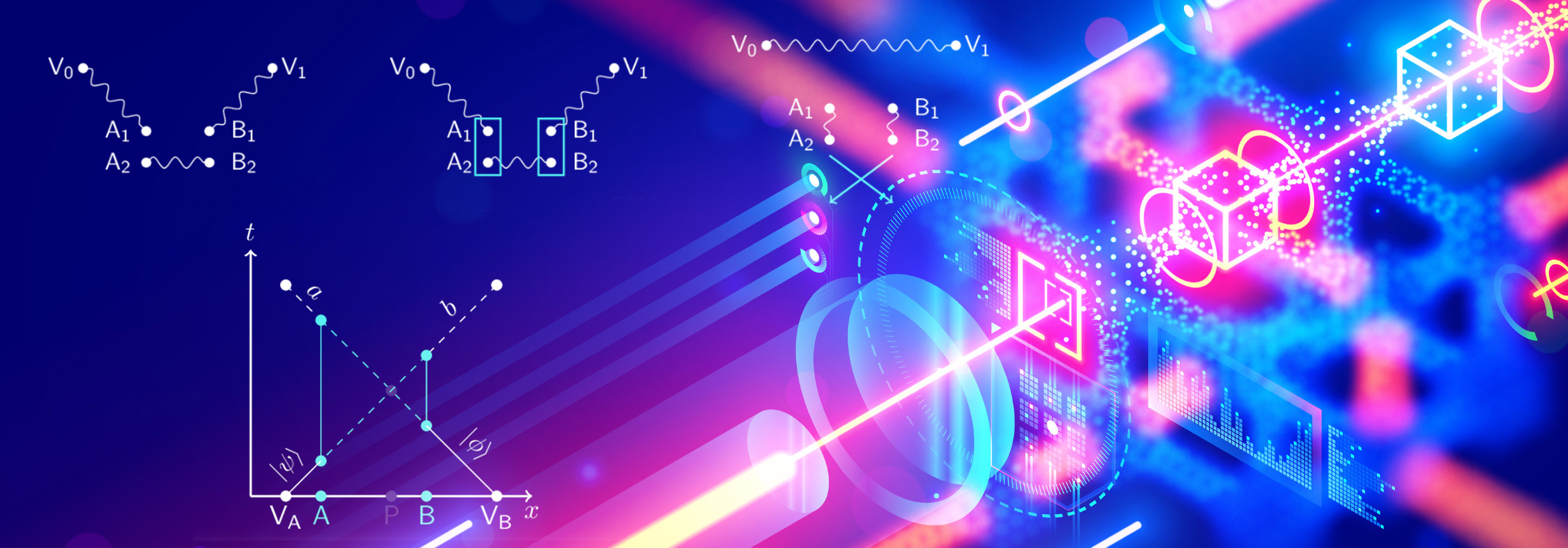
Quantum position verification (QPV) schemes use the properties of quantum information and the relativistic signalling bound to verify the location of an object (sometimes called a “tag”) to distant observers in an environment that may contain would-be spoofers. The guarantee is based on the assumptions of the underlying security model; various theoretically and practically interesting security models have been proposed. The area is attracting increasing interest, with new theoretical developments in security analyses, emerging experimental studies of QPV systems, and recently discovered surprising and intriguing connections to topics in quantum gravity. A workshop on QPV will be held at the Perimeter Institute for Theoretical Physics.
The workshop will cover topics related to all aspects of QPV, including, but not limited to:
- Theoretical developments related to the security of QPV schemes, including development or refinement of security models, proofs of security within given models, tradeoffs between security and efficiency, and Experimental studies of QPV and theoretical work aimed at developing practical QPV schemes.
- QPV’s relationship to other cryptographic tasks and primitives.
- QPV’s relationship to holography and quantum gravity.

Territorial Land Acknowledgement
Perimeter Institute acknowledges that it is situated on the traditional territory of the Anishinaabe, Haudenosaunee, and Neutral peoples.
Perimeter Institute is located on the Haldimand Tract. After the American Revolution, the tract was granted by the British to the Six Nations of the Grand River and the Mississaugas of the Credit First Nation as compensation for their role in the war and for the loss of their traditional lands in upstate New York. Of the 950,000 acres granted to the Haudenosaunee, less than 5 percent remains Six Nations land. Only 6,100 acres remain Mississaugas of the Credit land.
We thank the Anishinaabe, Haudenosaunee, and Neutral peoples for hosting us on their land.
Format results
-

-

QPV: An Overview and Reflections
Harry Buhrman Centrum Wiskunde & Informatica
-

Popescu-Rohrlich correlations imply efficient instantaneous nonlocal quantum computation
Anne Broadbent University of Ottawa
PIRSA:23090023 -

Non-local quantum computation meets quantum gravity
Alex May Perimeter Institute for Theoretical Physics
-

Quantum Error-Correction and Holographic Task
Beni Yoshida Perimeter Institute for Theoretical Physics
-

-

Protocols and Implementations of Quantum Position Verification
-
Eric Chitambar University of Illinois Urbana-Champaign
-
Paul Kwiat University of Illinois
-
-

-

-

-

Making Existing Quantum Position Verification Protocols Secure Against Arbitrary Transmission Loss
Andreas Bluhm Laboratoire d'Informatique de Grenoble
-

QPV and Geometry of Banach spaces
David Perez-Garcia Universidad Complutense de Madrid
